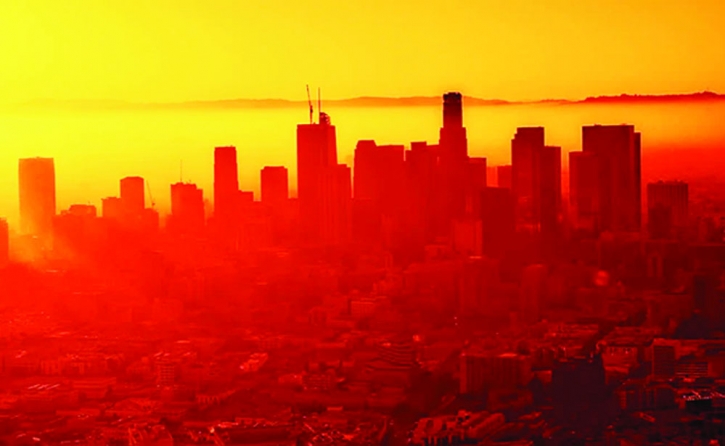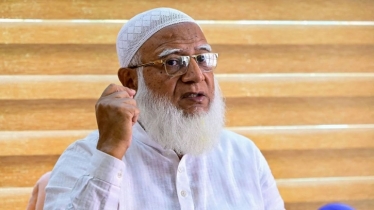
The world is very likely to miss the most important climate target of limiting global temperature rise to 1.5 degrees Celsius above pre-industrial levels but drastic and urgent action in this decade can prevent it, a UN panel on climate change said in a report on Monday. India welcomed the Intergovernmental Panel on Climate Change's Synthesis Report, saying it endorses the country's call for equity and climate justice.
The Synthesis Report is a summary of all the reports the IPCC produced since 2015 on the reasons and consequences of global temperature rise due to anthropogenic emissions. Releasing the report, the body of the world's leading climate scientists said keeping warming to 1.5 degrees Celsius above pre-industrial levels requires deep, rapid and sustained greenhouse gas emissions reductions in all sectors.
"A resilient, liveable future is still available to us, but actions taken in this decade to deliver deep, rapid and sustained emissions cuts represent a rapidly narrowing window for humanity to limit warming to 1.5 degrees Celsius with minimal or no overshoot. If we delay action, losses and damages will rise, and additional human and natural systems will reach adaptation limits," it said.
"Humanity is on thin ice - and that ice is melting fast... The climate time-bomb is ticking. But today's IPCC report is a how-to guide to defuse the climate time-bomb. It is a survival guide for humanity. The 1.5-degree limit is achievable. But it will take a quantum leap in climate action," UN Secretary General Antonio Guterres said in a video address.
"This report is a clarion call to massively fast-track climate efforts by every country and every sector and on every timeframe. Our world needs climate action on all fronts: everything, everywhere, all at once," he said.
Guterres urged rich countries to reach net zero by 2040 and developing countries to aim for 2050.
He called for phasing out of coal by 2030 in OECD countries and 2040 elsewhere.
"The Synthesis Report underscores the urgency of taking more ambitious action and shows that, if we act now, we can still secure a liveable sustainable future for all," IPCC Chair Hoesung Lee said.
Approved during a week-long session in Interlaken, Switzerland, the report underlined that the "10 per cent of households with the highest emissions per person contribute 34 45 per cent of all household emissions, while the bottom 50 per cent contribute just 13 to 15 per cent." Union Environment Minister Bhupender Yadav said the report echoes the vision of Prime Minister Narendra Modi's 'Mission LiFE' (lifestyle for environment) which calls for a global mass movement for inducing behavioural changes focused on "mindful and deliberate utilization" of resources.
He said climate scientists confirmed that financial support from developed to developing countries is a critical enabler of climate action highlighting that current flows are inadequate. "This includes the promised-but-never-received USD 100 billion." Mobilising and enhancing access to finance, particularly for developing countries, vulnerable regions, sectors and groups, and aligning finance flows for climate action need to be consistent with ambition levels and funding needs, the climate scientists said.
The report stressed that fossil fuel use is overwhelmingly driving global warming. In 2019, around 79 per cent of global greenhouse gas (GHG) emissions came from energy, industry, transport and buildings, and 22 per cent came from agriculture, forestry and other land use.
"The report brings into sharp focus the losses and damages we are already experiencing and will continue into the future, hitting the most vulnerable people and ecosystems especially hard," the IPCC said in a statement.
Taking the right action now could result in the transformational change essential for a sustainable, equitable world, it said.
"Climate justice is crucial because those who have contributed least to climate change are being disproportionately affected," said Aditi Mukherji, one of the 93 authors of the Synthesis Report, the closing chapter of the panel's sixth assessment.
"Almost half of the world's population lives in regions that are highly vulnerable to climate change. In the last decade, deaths from floods, droughts and storms were 15 times higher in highly vulnerable regions," she added.
Emissions should be decreasing by now and will need to be cut by almost half by 2030, if warming is to be limited to 1.5 degrees Celsius, the IPCC said.
Around 3.3-3.6 billion people are highly vulnerable to climate change. They are 15 times more likely to die from floods, droughts and storms.
Some ecosystems are getting close to a point of no return, caused by impacts such as glacier retreat and arctic permafrost thaw, the report said.
Climate change has reduced food security and affected water security, and extreme heat events are driving up death rates and disease. Increasing temperatures, trauma from extreme events and losses of livelihoods and culture are leading to mental health challenges, it said.
"In this report, we talk of loss and damages to biodiversity, livelihood, water security, energy security etc. So it must be every country's priority to minimize the loss and damage to this.
"It is especially important for India as we have a large number of vulnerable populations, low-income groups, informal settlements in urban cities, and outdoor workers," said Prof Joyashree Roy, Energy Economics programme, Asian Institute of Technology, and one of the authors of the report.





































